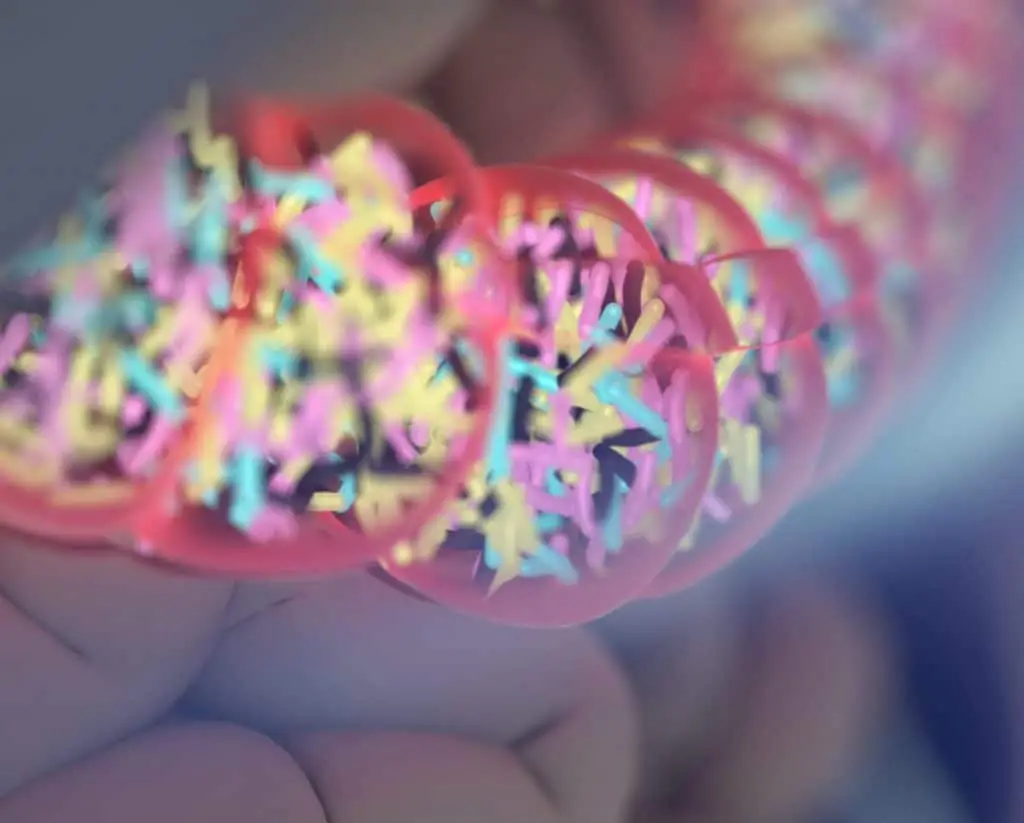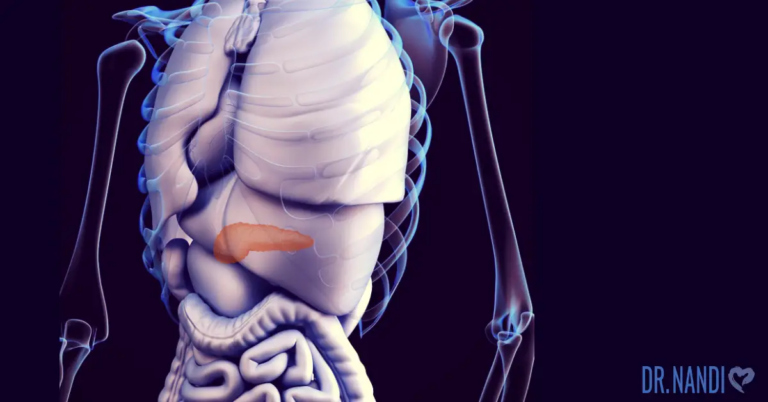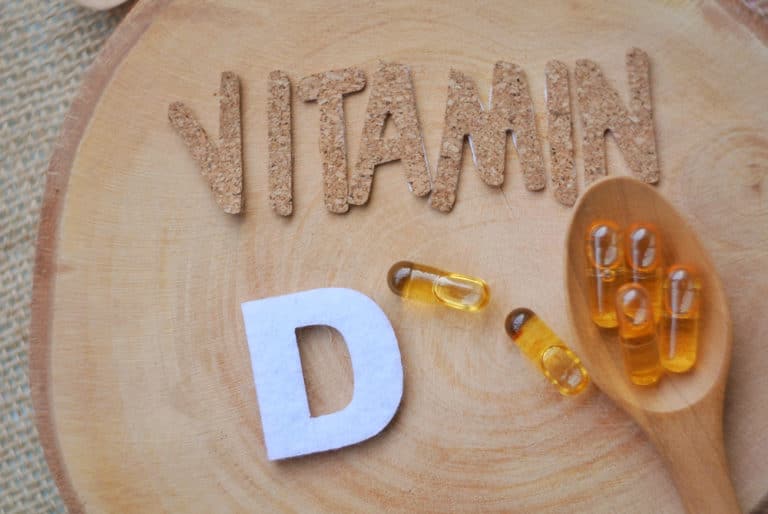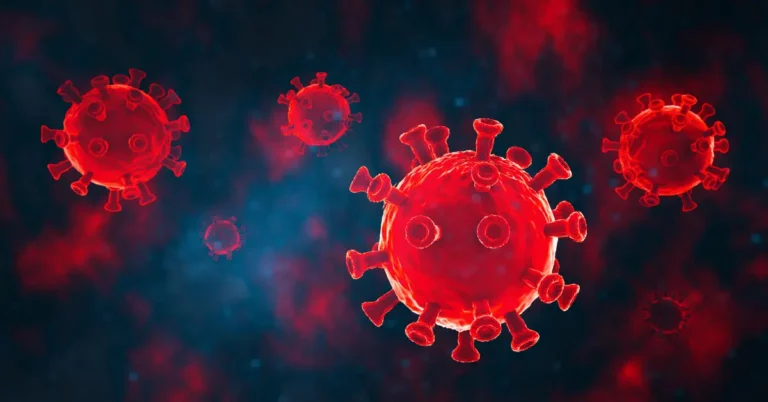Gut microbes are a community of bacteria, viruses, and fungi living in your gut. A recent study shows gut bacteria could play a role in sleep patterns. (1,2)
The Relationship Between Gut Health And Sleep
The study’s lead author, Professor Masashi Yanagisawa of the University of Tsukuba in Japan, suggests gut bacteria help create critical chemical messengers in the brain. The study’s findings could provide insights to assist those suffering from poor sleep or sleep-related issues from insomnia to mental fog. (1,2)
“We found that microbe depletion eliminated serotonin in the gut. We know that serotonin levels in the brain can affect sleep-wake cycles,” says Prof. Yanagisawa. “Thus, changing which microbes are in the gut by altering diet has the potential to help those who have trouble sleeping.” (1,2)
Gut Health And Sleep-Wake Cycles
The team built on existing studies appearing in Scientific Reports establishing that cognition and brain development elements are strongly linked with intestinal microbial health and metabolism. Natural functions such as circadian rhythms and eating are vital biological processes or functions. Circadian rhythms are based on a 24-hour cycle using the body’s internal clock, triggering our sleep-wake cycles. When these are off, it causes sleep disturbances. (3,1)
The Gut-Brain Axis
The “brain-gut axis” or “microbiota-gut-brain axis” connects intestinal metabolism and brain function through the circulatory and vagus nerves. The gut microbiome affects elements of brain function, including the circadian rhythm. Because diet affects gut microbiota, these changes can change intestinal metabolism. The microbes in microbiota create gut metabolites which are molecules resulting from the chemical reactions occurring during the digestive process. (1,2)
As a result, if diet changes, it could improve or reduce sleep problems. If this is true, diet could become a simple alternative to sleep medications. However, the study is yet to be applied to human subjects. The study at the university in Japan looked at mice. (1,2)

Gut Health And Sleep In Mice
Some mice were given water with broad-spectrum antibiotics to deplete the mice’s gut microbiota. Research showed these mice had fewer intestinal metabolites. “We found more than 200 metabolite differences between mouse groups,” says Prof. Yanagisawa. “About 60 normal metabolites were missing in the microbiota-depleted mice, and the others differed in the amount — some more and some less than in the control mice.” (1,2)
Antibiotics And Gut Health
The antibiotic treatment most affected were those that help produce the molecules used by neurons to communicate called neurotransmitters. The study showed that the antibiotics: (1,2)
- Shut down the tryptophan-serotonin pathway.
- Caused higher tryptophan levels but almost no serotonin.
- Showed deficiency in vitamin B6 metabolites required to speed up serotonin and dopamine production.
As a result, researchers concluded gut microbes are critical to changing the tryptophan in foods to serotonin. (1,2)
Gut Health And Sleep Results
The brains of the mice showed: (1,2)
- More rapid eye movement (REM) and non-REM sleep at night, when mice are typically active.
- Less non-REM sleep during the daytime when mice tend to sleep.
- A higher number of REM sleep episodes during the night and day.
- A higher number of non-REM episodes in the daytime.
The study suggests the noted sleep disturbances could relate to low serotonin levels. However, more research is required to help determine the mechanism. Future research will also see if the findings are true for humans. (1,2)
Download Dr. Partha Nandi’s FREE 7-day guided meditation journey to help you release the feelings of anxiety and tension that can interfere with sleep.

My Personal RX:
Following the findings and conclusions in this article, as a healthcare practitioner, I would advise the following steps to enhance gut health and potentially improve sleep patterns:
- Dietary Adjustment: Optimize your diet to support a healthy gut microbiome. This includes a high intake of fiber-rich foods like fruits, vegetables, and whole grains, along with fermented foods like yogurt, sauerkraut, and kimchi that promote beneficial gut bacteria.
- Avoid Unnecessary Antibiotics: Overuse of antibiotics can disrupt the gut microbiome, potentially affecting sleep patterns. Only use antibiotics when prescribed by a healthcare professional and absolutely necessary.
- Probiotic Supplementation: Consider a high-quality probiotic supplement, to support a healthy microbiome. It’s essential to consult a healthcare professional to choose the best probiotic for your individual needs.
- Regular Exercise: Regular physical activity can help maintain a healthy gut microbiome and promote better sleep.
- Mindful Eating: Pay attention to how your body reacts to different foods. If a certain food seems to disrupt your sleep, consider eliminating it from your diet.
- Download Free Sleep Guide: To further improve your sleep, consider downloading my free sleep guide, which is designed to offer practical tips and exercises to optimize your sleep patterns.
- Supplement with Sleep Max: My specially formulated Sleep Max supplement contains key nutrients to support sleep, including vitamins, minerals, and herbal extracts. This supplement can potentially help to enhance sleep quality, and is a beneficial addition to a healthy sleep hygiene regimen.

Remember, these are general recommendations and may not work for everyone. It’s essential to consult with a healthcare professional before making significant changes to your diet or supplement regimen. Individual needs and responses can vary.
Sources:











 Subscribe to Ask Dr. Nandi YouTube Channel
Subscribe to Ask Dr. Nandi YouTube Channel










